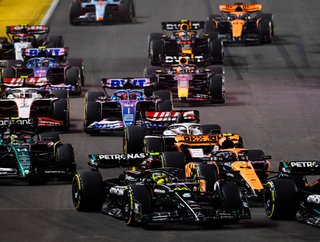Formula 1: Energy & Logistics Driving Net Zero by 2030

Formula 1 (F1) is one of the world’s most famous sporting competitions, and is continuing to grow in popularity.
In 2023, the average viewers per race was 1.11 million – nearly double what it achieved in 2018 – with some fans spending on average US$600 per race to attend in person and some drivers earning over US$50m. For Lewis Hamilton in the 2023 season, that's almost US$30,000 per lap raced.
In 2019, F1 launched its sustainability strategy with three key goals:
- Achieve Net Zero Carbon by 2030
- Leave a legacy of positive change wherever it races
- Build a more diverse and inclusive sport
“Sustainability is one of the most important factors to us not only as a sport, but as a business,” said Stefano Domenicali, President & CEO of Formula 1.
“It is no longer enough for us to simply deliver great action and wheel-to-wheel racing on the track, we need to ensure that we are doing so in a sustainable way so our sport can thrive long into the future.
“F1 has been innovating and influencing wider society for more than 70 years, and we’ve seen how the great minds and technology of the sport have had a positive impact in many different spaces and now we have turned that expertise and insight to sustainability.”

“We are a global sport with more than 700 million fans around the world, which gives us a great platform to create change and influence those watching and engaging with F1 to take action and leave their own positive legacy.
“Over the past four years we have made significant progress and we remain very focused on our goals and I’m excited to see the impact we can have.”
The first Formula 1 Impact Report details achievements in environmental and social sustainability, including the 13% reduction in the sport’s carbon footprint compared to 2018. The goal is to cut carbon emissions by a minimum of 50% by 2030 in line with the definition of net zero set by the Intergovernmental Panel on Climate Change (IPCC).
With the logistics sector accounting for almost half of F1’s total footprint, what are the next steps on the race to net zero for F1?
Powering globally expansive sport
The F1 environmental sustainability strategy centres around two key areas: energy and logistics.
On the track, leading energy provider Aramco has entered a sustainable fuel partnership with F1, with all F2 and F3 cars trialling 55% sustainable fuel, working towards the use of 100% sustainable fuel in F1 cars by 2026.
In the wider events, more than three quarters of promoters used renewable energy sources in 2023, up from 50% in 2022. These include:
- The Austrian Grand Prix used a a next-generation energy pilot to reduce emissions by more than 90%
- Bahrain International Circuit’s solar farm produced 5.28MW of clean energy between the 2022 and 2023 Grands Prix – enough to cover F1 usage with energy to spare
- The British Grand Prix was fully powered by green energy alternatives, including 2,746 solar panels and Hydrotreated Vegetable Oil (HVO) fuel
Outside of the main events, the 2023 calendar of races took the teams 75,000 miles – equivalent to three times around the earth – with 1,500 tons of equipment, covering five continents and ten time zones. The logistics behind the F1 season is mammoth to say the least.
Formula 1’s logistics partner is DHL, which also powers logistics for Formula E, and is a step ahead when it comes to sustainable logistics. DHL’s fleet of biofuel trucks supported the Formula 1 emissions reduction by reducing logistics-related carbon emissions by an average of 83% during the European season.
Formula 1 is the first motorsport championship in the world to achieve – and have all member teams achieve – FIA Three-Star Environmental Accreditation, the highest level of environmental sustainability recognition from the sport’s governing body.
******
Make sure you check out the latest edition of Sustainability Magazine and also sign up to our global conference series - Sustainability LIVE 2024
******
Sustainability Magazine is a BizClik brand
******






